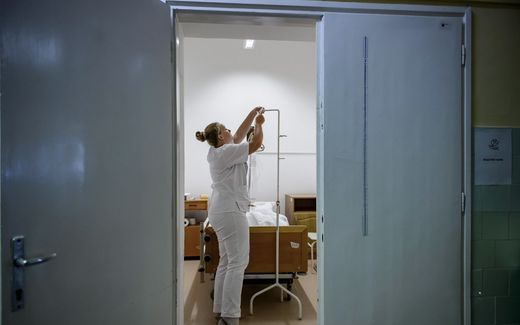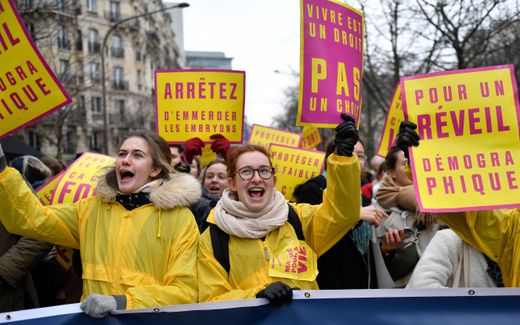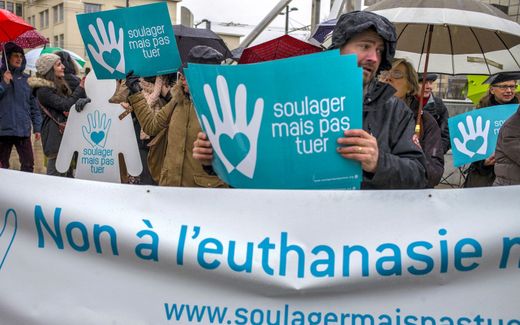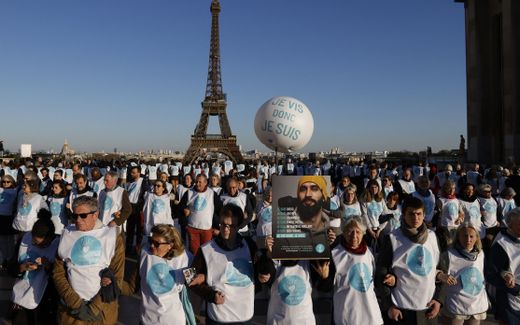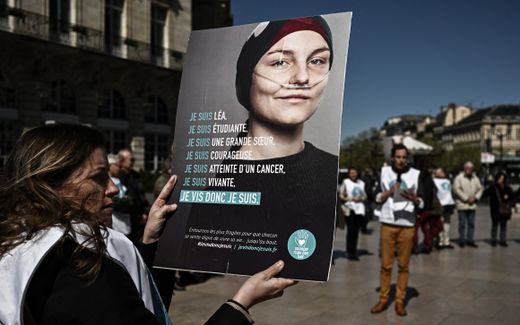Medical professionals warn against euthanasia for psychiatric patients
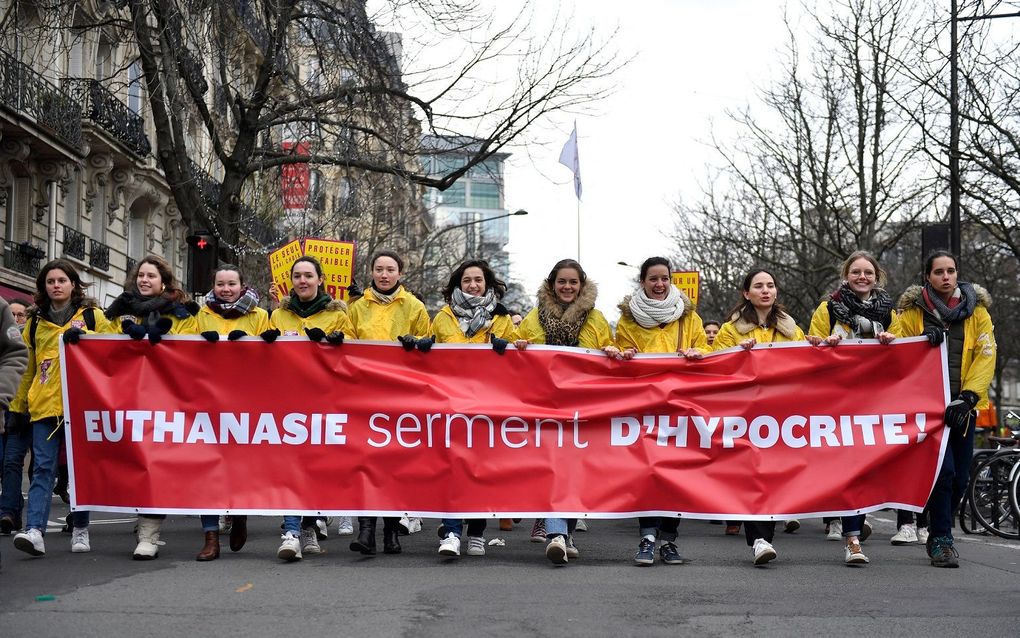
Demonstrators hold a banner reading "euthanasia, hypocritical oath" in reference to the Hippocratic Oath during a March for Life, against abortion and euthanasia. Photo AFP, Julien de Rosa
Western Europe
Two French doctors worry about the possible legalisation of euthanasia for people with psychological problems. They are afraid of severe abuses of the system.
The societal debate around self-determined death has a severe problem, psychiatrist Faroudja Hocini and doctor Bruno Dallaporta write in La Croix. Those who "want to lift the ban on killing" seem to ignore that "we have good legal practices, which are poorly known, poorly taught, and badly applied", they argue. In addition, they find it cynical that the French state does not promote the transmission of these values of care and instead makes the population "internalise the idea that helping us actively to die is a generous solution, progress."
Promise
France promised that, in case of legalisation of self-determined death, the option would not be available to psychiatric patients. However, Hocini and Dallaporta are not satisfied with that promise. They point to other countries, such as the Netherlands and Belgium, where the restrictions for psychiatric patients have been liberated over time.
In the Netherlands, for example, psychiatric patients may be granted their euthanasia request if their death wish is voluntary, well-thought-out, their suffering is hopeless and unbearable, they are well informed about their options and medical situation, a second opinion is requested from an independent physician, and the euthanasia is carried out carefully, the website of the Dutch government writes.
Belgium recently granted the euthanasia request of a young woman who survived the terrorist attacks in 2016. She was diagnosed with post-traumatic stress disorder and depression. Her life ended in May 2022 by euthanasia because her suffering was seen as unbearable.
Encounter
The French doctors say that they have been encouraged by their colleagues to stand up against the legalisation of euthanasia for psychiatric patients before it is legalised. "Once the doors are open, it will be too late." According to the two medical experts, it was a mistake to grant De Corte's euthanasia request in Belgium. "She did not die of her psychiatric illness, but because of a law which decided that her destiny was written, definitely frozen. The law decided, we decided, that no unexpected encounter would change her life."
The ban on killing is the condition of all care, Hocini and Dallaporta argue. "It is thanks to this prohibition that crossroads can be invented where paths of subjectivation will arise."
In addition, they criticise the fact that politicians speak about "incurable diseases as in the 19th century." "Today, we live with chronic pathologies, and the definition of healing has changed: we harbour more or less silent illnesses, with phases of improvement and worsening that can last for years. And we live despite everything, reinventing other balances, new ways of life, other truths of meaning, which are always in the making, never closed."
In addition, people are known for changing their minds, also when it comes to a death wish, the doctors point out.
Failures
And there is a danger of abuse of the system, they warn. "Underground motives can make us want the death of these people who put us face to face with our therapeutic failures, or because these people constitute forms of life in which we do not want to recognise ourselves."
Related Articles


